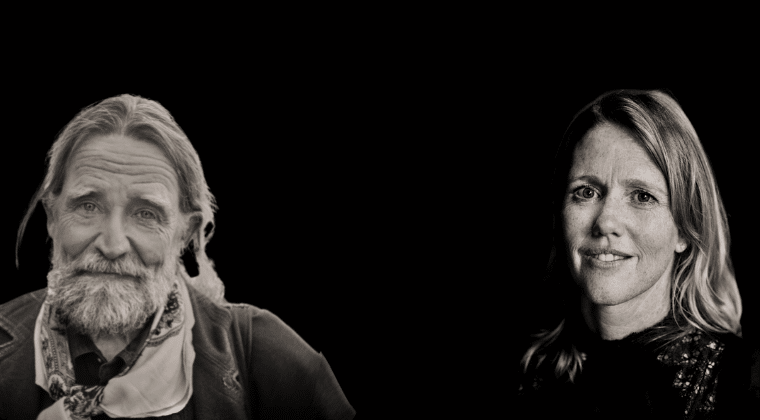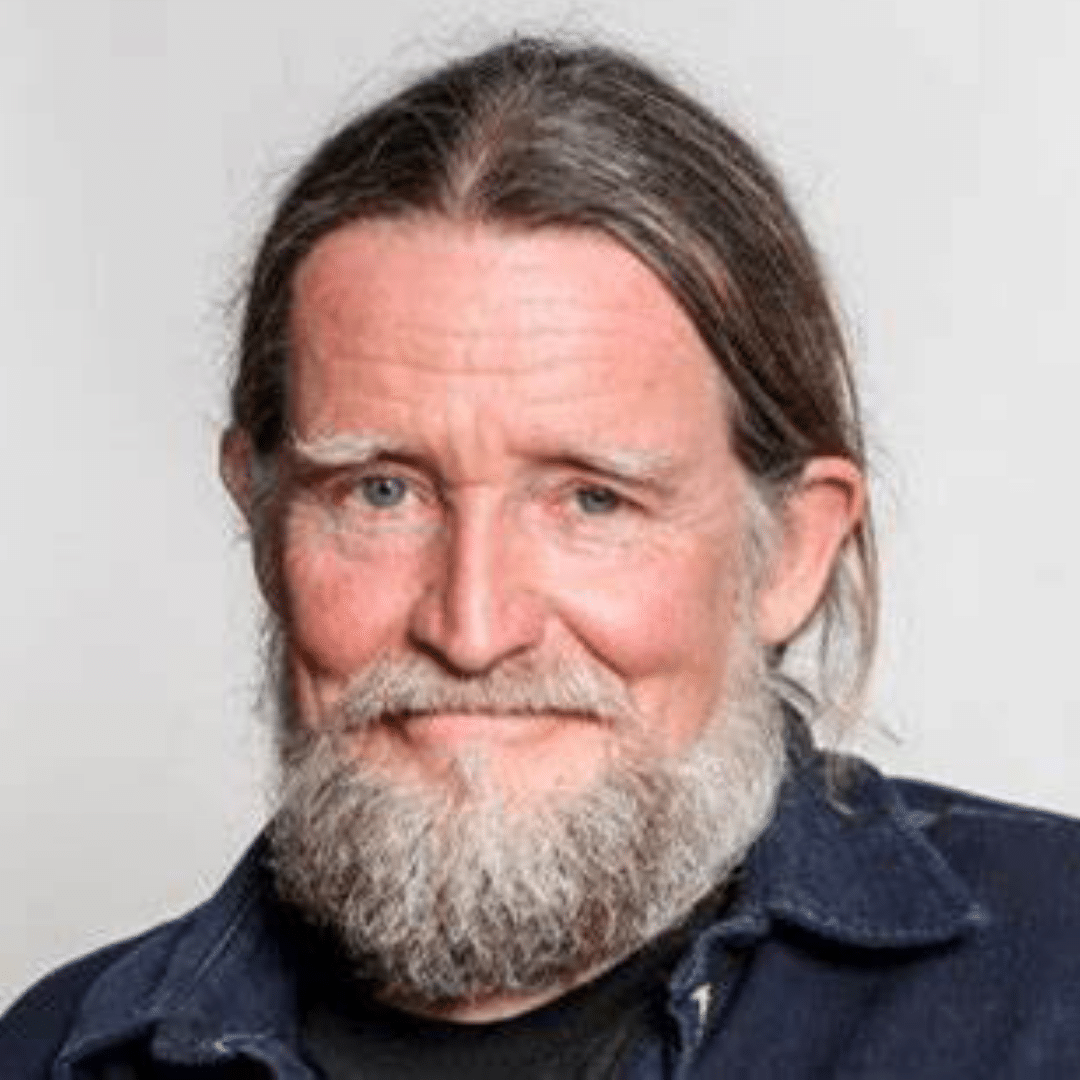Honest Reckoning in Troubled Times

A 5 series recorded conversation
with Stephen Jenkinson and Kimberly Ann Johnson
Get instant access to the audio and video recordings when you register.
“You come by your prejudices more or less involuntarily. That means you inherit them. And generally speaking, the world gives you plenty of reason to go with your prejudices and not wonder about them too much. That’s a very potentially dark thing to consider that the world in its conditions is so encouraging of your prejudices, that you could almost be forgiven for being unconscious about them.”
– Stephen Jenkinson
"Heartbreak is how you humanize your prejudices."
-Stephen Jenkinson
The Autumn 2021 conversations I had with Stephen Jenkinson began with two podcasts that were the most listened to that I’ve ever recorded- tripled anything I had made before.
They are also a mark in time for me.
There is the person I was before engaging with Stephen Jenkinson and the person I seem to be in the wake of my meetings with Stephen Jenkinson.
I can’t explain to you exactly why.
But I can extend an invitation to you to listen into and witness and embibe these five conversations, on five consecutive Sundays that ensued as a result of those original two meetings, that occurred within 24 hours.
“One part of my particular heartbreaks at this moment is that the unconscious foundation of so much of my worldview, even in its criticisms, is still rooted in individualism, and especially heartbreaking the remarkable individualism of those around me who bang the drum of community.”
- Kimberly Ann Johnson
Dear Ones,
A lot of people have reached out to me to ask how I’ve changed as a result of these podcasts and conversations.
I can’t give you a neat and tidy summary of the five things I’m doing differently now, before SJ and after SJ, or how my relationships have drastically changed, or how now I feel a new resolve about my work life or mothering.
I don’t have more answers.
In fact, in a way things have gotten messier. But the etymology of “mess” lets me know that messes have their origins in feasting and feeding. Maybe my messiness is becoming more fit to bring people to the table.
But I can tell you what changed is the emergence of a bass note that I don’t recall being there before.
When I wake up in the morning, there’s a remembering of the times we’re in and the places I’m trying to find in them. The two podcasts registered as an invited indictment- one of the only elders I’ve ever spoken with who wasn’t trying to end on a high note or give me hope or inspiration- in fact, quite the opposite.
Maybe hope-free instead of hopeful and directing me towards perspiration in the form of work rather than inspiration.
And yet, instead of leaving me demoralized, I felt that finally I was hearing a more accurate reflection to what I was feeling and sensing in the parts of the world I am attuned towards, attended to at a depth and a complexity that felt like nourishment, even though he articulates a crisis bigger, broader and deeper than what I imagined.
The 5 series Honest Reckonings conversations was a chance to go deeper, to be able to let things sink in over time, and see if there were clarifications desired or other facets revealed that may only arise when there is time and space. Together with 200 folks from around the world, we eagerly gathered for five Sundays in November and December, 2021.
There are so many one-offs these days. One hour podcasts. One hour interview summits. And there are also no shortage of courses, where you can learn from one person, potentially augmented by a guest teacher or many, for a one hour guest spot or teaching.
What happens if we dare to spend more time together? What happens if we dare to circle back? What happens if we sit next to someone and their body of work and give them both time to develop and work on us and in us?
Does our worldview broaden if we have to go beyond first impressions, sound bites, a first layer introduction to what someone’s about?
What happens if instead of feeding from a spiritual or inspirational smorgasbord we let ourselves return to the same table and the same company over time?
Our supposed topics each week were each one of Stephen’s major works.
But we allowed the time together to be informed by the questions that flowed in, my own questions and then the great mystery of what arose during a holiday season coming with a rising tide of another wave of the plague.
Neither of us held back.
I was fully present for each encounter.
Without wanting to be gluttonous, I have also listened to each of our conversations several times since then. There is so much wisdom and depth to sit with.
I think you may also find that these are conversations to return to, in a troubled time, where elders are sparse, these conversations may serve as some kind of a compass.
They have for me.

“Seeing things your way is not that big an achievement, but being willing to be heartbroken together while not being in agreement... That's for real, that really counts. That’s how you can tell you’re in the presence of a couple of grownups.”
- Stephen Jenkinson
IN THese five talks, WE MOVE WITH AND THROUGH Stephen Jenkinson’s major WORKS as anchors for an alive + personal conversation
- Money and the Soul’s Desires
- Die Wise: A Manifesto For Sanity And Soul
- Come Of Age: The Case For Elderhood In A Time Of Trouble
- Dark Roads & Rough Gods
- A Generation’s Worth: Spirit Work While The Crisis Reigns
We will attend to the skills of grief, heartbreak, citizenship, elderhood and culture-making.
Investment:
$175
You will gain lifetime access to both the audio and video recordings.
ACCESS NOW

About Stephen Jenkinson:
Stephen is a worker, author, storyteller, culture activist, and co-founder of the Orphan Wisdom School with his wife Nathalie Roy. The school is a teaching house for skills of deep living and making human culture that are mandatory in endangered, endangering times. He makes books, tends farm and mends broken handles and fences, succumbs to interviews, teaches and performs internationally.
He has Master’s degrees from Harvard University (Theology) and the University of Toronto (Social Work).
Apprenticed to a master storyteller when a young man, he has worked extensively with dying people and their families, is former program director in a major Canadian hospital, former assistant professor in a prominent Canadian medical school.
Stephen Jenkinson is also the subject of the feature length documentary film Griefwalker, a portrait of his work with dying people, and Lost Nation Road, a shorter documentary on the crafting of the Nights of Grief and Mystery tours.

Kimberly Ann Johnson
Host
Kimberly Johnson is an author, postpartum care activist, trauma educator, structural bodyworker and mother. She graduated Valedictorian from Northwestern University with a BS in Social Policy (‘97).
She studied yoga directly with the three main lineage holders of the Krishnamacharya tradition- Desikachar, BKS Iyengar, and Pattabhi Jois and taught yoga full time for 15 years, while also maintaining a Structural Integration practice.
When radically rearranged by childbirth, Kimberly’s life changed shape to attend to the cultural chasm of postpartum care, and as a result she trained in Somatic Experiencing and Sexological Bodywork to be able to help women heal from birth injuries, gynecological surgeries and sexual boundary violations.
She is the author of the recent Call of the Wild: How We Heal Trauma, Awaken Our Own Power and Use it for Good published by the feminist imprint HarperWave as well as the early mothering classic, The Fourth Trimester: A Postpartum Guide to Healing Your Body, Balancing Your Emotions and Restoring Your Vitality (Shambhala, 2017) translated into eight languages
"Regret has a immense utility, a genuine mandatory presence in a conscious person's life. It's not there to grind away on you til you fess up to your fundamental and intractable guilt. It's there to give you a sense that things could have been otherwise."
- Stephen Jenkinson
I invite you to This honest reckoning.
“Interviews are not to be exercises in universal opinion mongering.
They need to confess to the mystifying principalities and powers of ordinary life. Confessed them and manifest them. And that’s what interviews should be.
Not interrogations, not exposés, but inquiries, animated by wonder and by a sense of urgency and about how things have come to be as they are.
Whatever sense of trespass or injustice or grievance might prompt the encounter. Dignity and the possible presence of a reading or viewing or listening audience obliged the partners involved towards wonder, towards respect for the unknown, the unmet and the unimagined.
Realize that appearing uninvited across the airwaves in the lives of strangers is a privilege, and it’s a privilege to be earned and to be earned again during the course of the interview. The parties to an interview should be governed by the etiquette of awe.”
— Stephen Jenkinson
We came to these meetings governed by this principle of awe and wonder, as well as a dedication to being true to this confounding historical and cultural moment we find ourselves in, to these times troubled long before the plague, and a responsibility to our fellow citizens in them. We hope that you are well-served by them.
